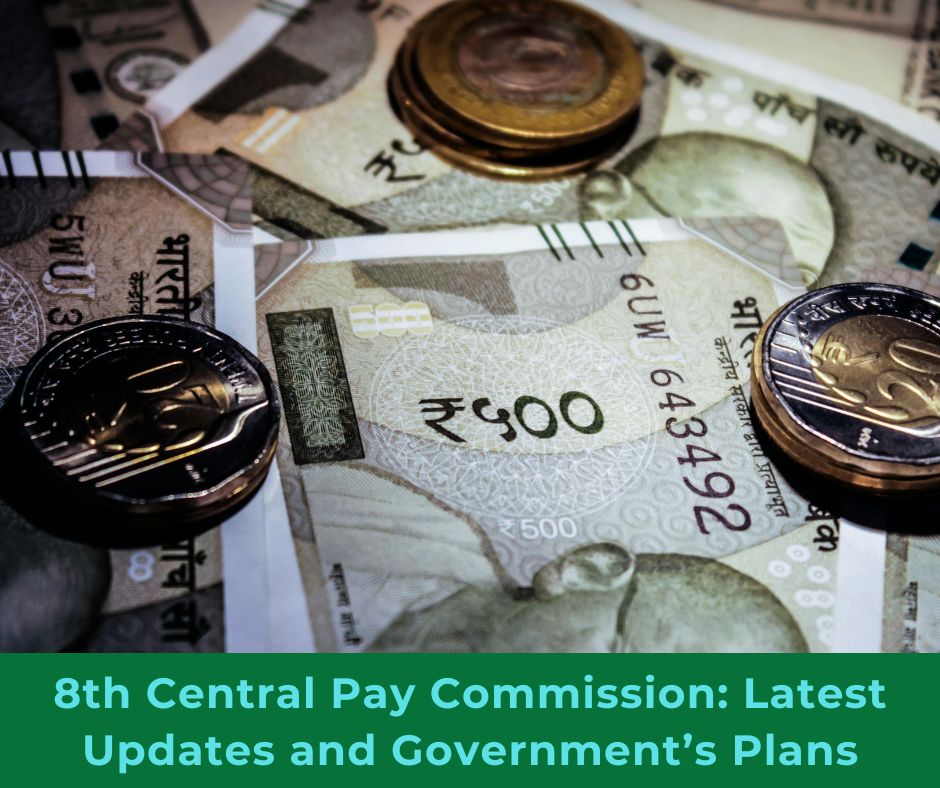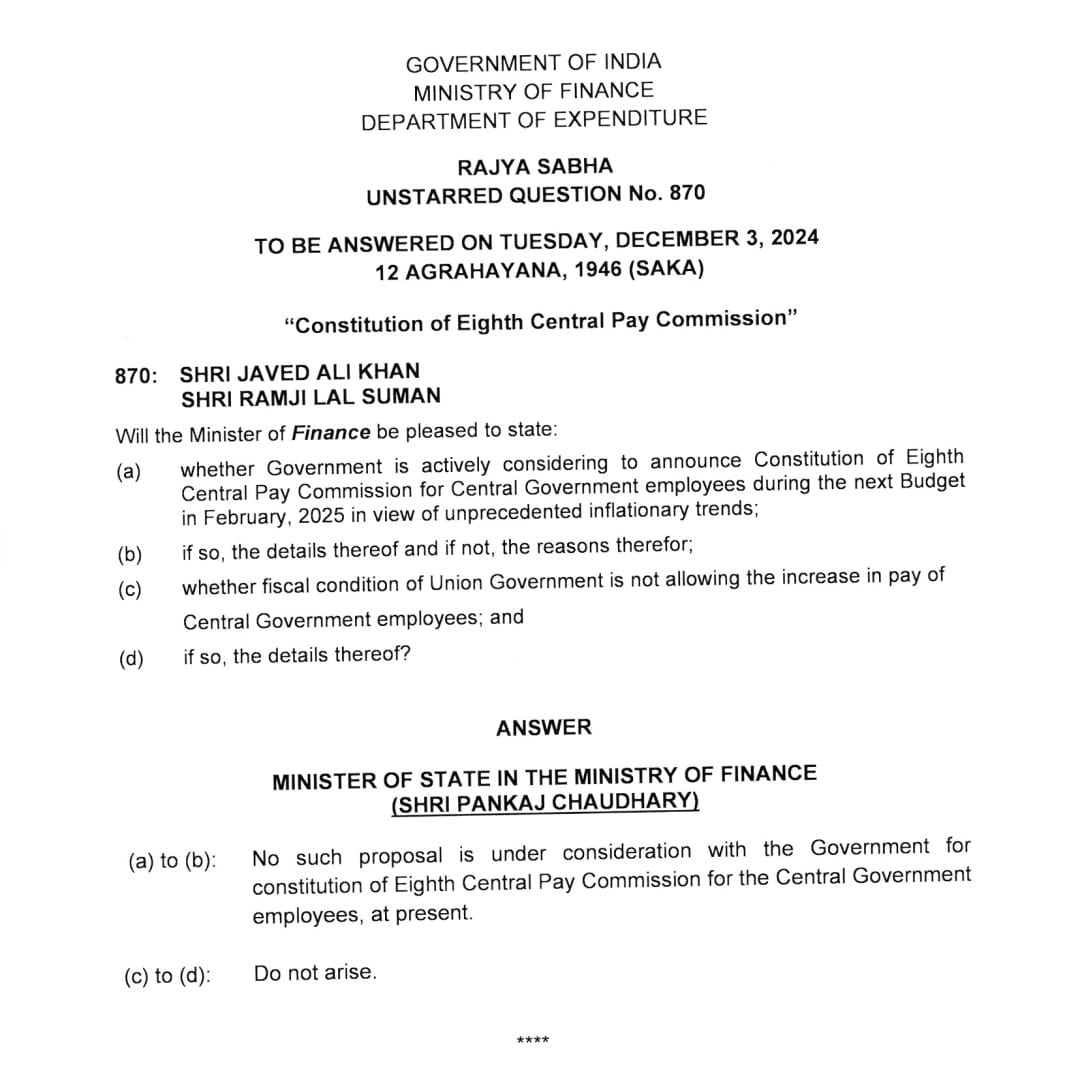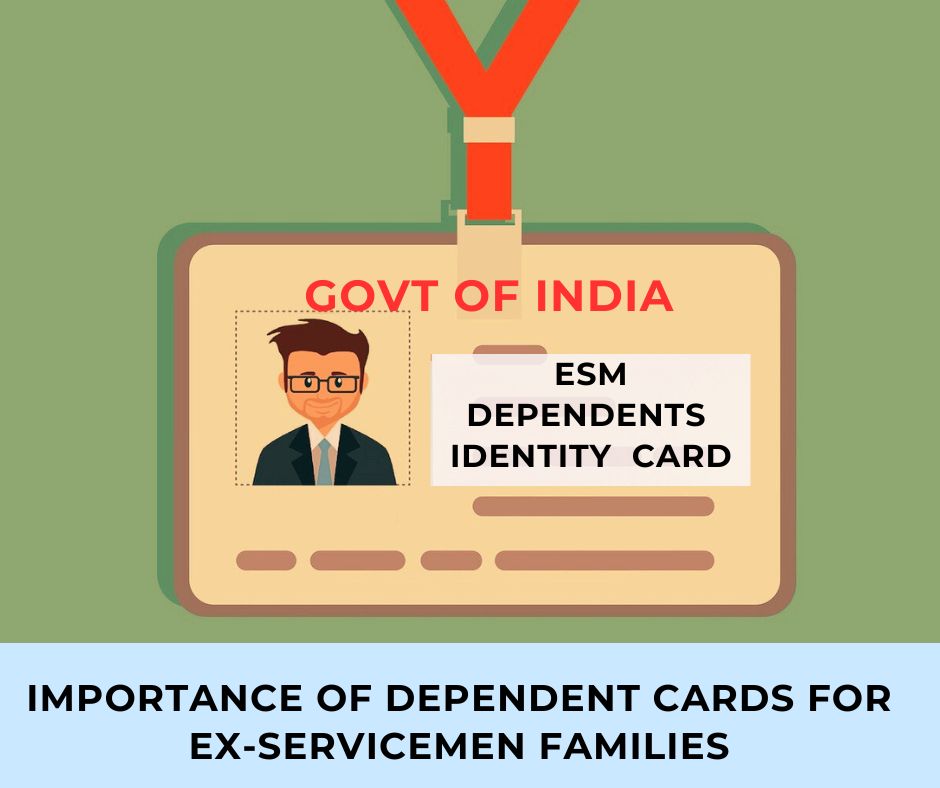
The 8th Pay Commission has become a major topic of discussion due to rising inflation and its impact on the finances of Central Government employees. These Pay Commissions are essential because they adjust salaries to keep pace with inflation and economic changes. Recently, the question of whether the Government of India will announce the 8th Pay Commission during the 2025 budget session was raised in the Rajya Sabha, giving some clarity on the matter.
What’s the Latest Update on 8th Pay Commission?
On December 3, 2024, in a Rajya Sabha session, Shri Javed Ali Khan and Shri Ramji Lal Suman asked the Ministry of Finance if the Government was planning to form the 8th Pay Commission. Their concerns focused on rising inflation and whether financial difficulties were stopping the Government from increasing salaries for its employees.
In response, Shri Pankaj Chaudhary, Minister of State for Finance, clarified that the Government is not currently considering forming the 8th Pay Commission. This statement cleared up some doubts but also sparked broader debates about how employee concerns will be addressed in the future.

Why the Delay?
The Government’s decision not to move forward with the 8th Pay Commission has raised questions about the financial challenges it may be facing. Revising salaries depends heavily on the Union Government’s budget and economic health. While the Government didn’t provide specific reasons, key factors like inflation, revenue, and spending priorities are likely influencing this stance.
Pay Commissions have traditionally been set up every ten years. For example, the 7th Pay Commission was formed in 2013, and its recommendations were implemented in 2016. Based on this pattern, the 8th Pay Commission would typically be expected to make its recommendations by 2025-26. However, the current Government has indicated that this timeline may not align with India’s fiscal realities and economic priorities.
Concerns of Government Employees
Central Government employees are understandably worried about how inflation is affecting their real incomes. Inflation reduces purchasing power, making everyday essentials more expensive. Without regular updates to their pay scales, many employees are experiencing financial stress. The absence of plans for the 8th Pay Commission has left employees wondering what steps, if any, the Government will take to address their issues.
Are There Alternatives?
Some experts have suggested alternatives to the traditional Pay Commission system. One idea is a dynamic pay adjustment mechanism, which would allow salaries to be revised regularly based on factors like inflation, employee productivity, and the Government’s financial position.
Such a system would eliminate the long waits between Pay Commissions and ensure that salaries remain fair and relevant. However, implementing such a mechanism would require significant policy changes and careful planning. The Government would also need to strike a balance between employee expectations and the country’s financial capacity.
The Bigger Picture
The decision not to form the 8th Pay Commission should be seen in the context of India’s broader economic priorities. The Government is focusing on large-scale projects like infrastructure development, welfare schemes, and managing the fiscal deficit. These initiatives are essential for long-term economic growth but limit the Government’s ability to make significant financial commitments, such as a comprehensive pay revision for its employees.
If salaries were increased without proper planning, it could strain the Union Government’s budget. This might lead to higher borrowing or cuts in other critical areas, such as healthcare or welfare programs. Policymakers face the difficult task of balancing employee welfare with broader economic goals.
What’s Next?
Not announcing the 8th Pay Commission doesn’t mean the Government is ignoring employee concerns. Other measures, such as increasing the dearness allowance or offering one-time bonuses, might provide some temporary relief. With the February 2025 budget session approaching, employees are eagerly waiting to see if the Government introduces new policies to address their concerns.
Conclusion
The Government’s decision to focus on financial discipline instead of forming the 8th Pay Commission reflects its broader economic strategy. While this approach aligns with India’s long-term goals, it highlights the need for innovative solutions to address the financial challenges faced by Central Government employees.
As the nation prepares for the upcoming budget, all eyes are on how the Government will balance its economic priorities with the needs of its workforce. This decision will not only impact the lives of employees but also shape the path for economic stability and growth in the years to come.
Click here to Download FOUJI DIARIES Newsletter




